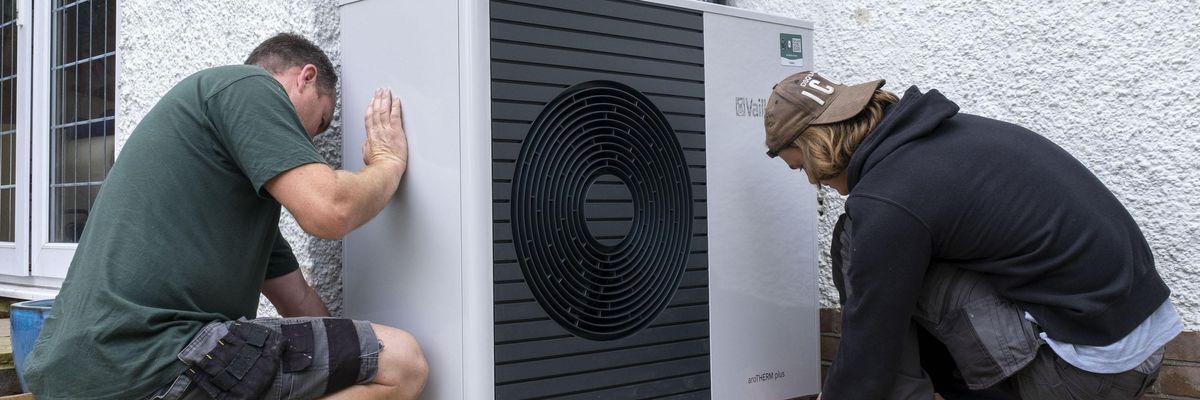A representative for New York Gov. Kathy Hochul indicated Friday that a deal to pass a state-wide ban on fossil fuel in new buildings will not include any provisions allowing local officials to veto the law, but a climate coalition urged advocates to maintain pressure to ensure the measure contains no "poison pills" to weaken it before applauding the deal.
"The new law will not have any loopholes that will undermine the intent of this measure," Katy Zielinski, a spokesperson for the Democratic governor, toldThe New York Times on Friday. "There will not be any option for municipalities to op out."
As long as the assurance proves true when the measure is passed as part of the state's $229 billion state budget in a vote that's expected next week, a majority of new buildings constructed in New York will be required to be outfitted for all-electric appliances such as heat pumps and induction stoves rather than furnaces, boilers, or water heaters thatrun on gas.
Climate group Food & Watch Watch (FWW) urged proponents to "keep the pressure on" lawmakers who will be hammering out the final details of the deal with Hochul in the coming days.
If passed, the law "will save New Yorkers money on energy bills, reduce climate-heating pollution, create jobs in clean energy, and reduce childhood asthma, a win-win for New Yorkers," said the Gas Free NY coalition, which includes Earthjustice, Food & Water Watch (FWW), New York Communities for Change, and NYPIRG. "It is also politically popular, with New Yorkers overwhelmingly in support."
A poll released by New Yorkers for Affordable Energy last month showed that 57% of New York residents support ending fossil fuels in new construction, and a study by the think tank Win Climate found that households would save between $904 and $3,000 per year if the state bans gas heating and cooking appliances.
The ban would go into effect in 2026 for buildings that are under seven stories and in 2029 for taller buildings—a delay that the climate coalition said would lock in "higher bills and decades of new pollution from the 40,000 new homes that are constructed each year until 2026."
The "handshake deal" reached between Hochul and lawmakers late Thursday still needs to be "fine-tuned" before the final budget vote, the governor told The New York Times. Hocul called the deal a "conceptual agreement."
Zielinski noted that certain buildings that need multiple backup power sources for emergencies, such as hospitals, will be exempt.
The gas industry has backed the proposal that Zielinski has said is not included in the deal, to allow municipalities to veto the provision.
Alex Beauchamp, Northeast director for FWW, toldThe Washington Post that the agreement reached Thursday, which brought New York one step closer to becoming the first state to ban gas in new buildings through a state law, was a "testament to the lasting power of the state's grassroots environmental movement."
"On the verge of a final agreement setting historic action into place, Gov. Hochul and the Legislature must not snatch defeat from the jaws of victory by including the gas industry's poison pill provision that could kneecap the law from the start," said the coalition.
"New Yorkers are watching carefully to make sure the final budget includes real action and doesn't defer to the gas lobby," the groups added. "New Yorkers don't want a big announcement that turns out to be a sham. Taken on its face, this will be an enormous victory, but the devil is in the details."
